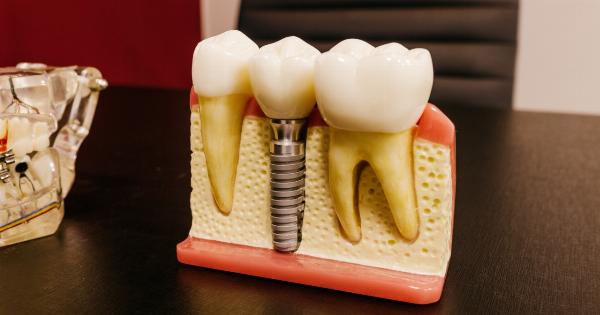Dehydration is a common condition that occurs when your body loses more fluids than it takes in. It can happen for various reasons, such as intense physical activity, illness, or hot weather.
If left untreated, dehydration can lead to serious health complications. Therefore, it’s vital to be aware of the signs of dehydration so that you can take prompt action to address it. In this article, we will discuss four common signs of dehydration that you should watch out for.
1. Increased Thirst
The most obvious sign of dehydration is an intense feeling of thirst. When your body lacks sufficient fluids, it activates the thirst mechanism to encourage you to drink more water or other hydrating fluids.
Feeling constantly thirsty, even after drinking fluids, could indicate that you are not adequately hydrated.
It’s important to note that sometimes people mistake hunger for thirst. So, the next time you feel hungry, it might be worth trying to quench your thirst first by drinking a glass of water.
If your hunger subsides, it could have been a sign of dehydration.
2. Dry Mouth and Bad Breath
Another sign of dehydration is a dry mouth and sticky or thick saliva. When your body is dehydrated, it reduces saliva production to conserve fluids. This can lead to a dry, parched feeling in your mouth.
Additionally, inadequate saliva can cause bacteria to thrive in your mouth, leading to bad breath.
If you’re experiencing persistent dry mouth or unpleasant breath despite good oral hygiene practices, it could be a sign that you need to drink more water to stay properly hydrated.
3. Dark-Colored Urine
Your urine color can provide valuable insights into your hydration status. When you’re well-hydrated, your urine should be pale yellow or straw-colored.
On the other hand, dark-colored urine, such as amber or honey-colored, indicates that you might be dehydrated.
Dark urine is an indicator that your body is trying to conserve fluids by reducing urinary output. However, it’s worth noting that certain medications, vitamins, and food dyes can also temporarily darken urine.
Therefore, if you’re concerned about dehydration, it’s essential to consider other accompanying symptoms as well before drawing conclusions solely based on urine color.
4. Fatigue and Dizziness
If you often feel tired or lightheaded, dehydration could be the culprit. When your body lacks fluids, your blood volume decreases. This, in turn, reduces the supply of oxygen and nutrients to your muscles and organs, leading to fatigue and dizziness.
If dehydration persists, it can even affect your cognitive abilities, causing difficulty concentrating and impaired memory. Therefore, it’s crucial to address dehydration promptly to prevent these potential complications.
Conclusion
Dehydration is a condition that should never be taken lightly. Keeping an eye out for the signs of dehydration can help you take appropriate action in a timely manner.
Remember, increased thirst, dry mouth and bad breath, dark-colored urine, and fatigue and dizziness are all potential indicators of dehydration.
To prevent dehydration, make sure to drink plenty of fluids throughout the day, especially during hot weather or when engaging in physical activity.
You can also incorporate hydrating foods and electrolyte-rich beverages into your diet to maintain proper hydration levels.
If you suspect severe dehydration or experience symptoms like rapid heartbeat, confusion, or extreme thirst, seek medical attention immediately. Dehydration can be a serious medical emergency that requires professional intervention.
























